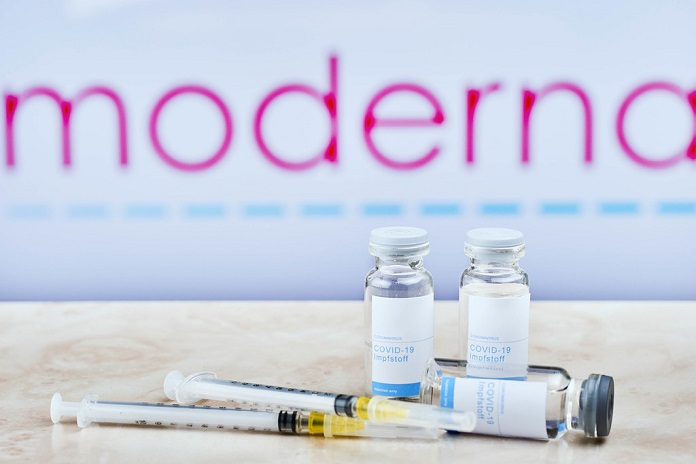Shares of Moderna (NASDAQ:MRNA) climbed 6.2% on April 9 following the release of promising data from an early-stage study on mRNA-4157/V940, its personalized neoantigen therapy (INT), for certain patients with head and neck cancer. This therapy is being developed in collaboration with Merck (NYSE:MRK).
The study focused on evaluating the combination of mRNA-4157 and Merck’s immunotherapy drug Keytruda in patients with human papillomavirus negative (HPV-) head and neck squamous cell carcinoma (HNSCC). Results indicated positive clinical responses in HPV- HNSCC patients along with evidence of immune response activation. Additionally, the combined therapy was well-tolerated and deemed safe by participants.
According to management, six out of 22 patients treated with the combination showed an objective response, including two complete responses and four partial ones, resulting in a disease control rate of 63.6%. These findings were presented at the American Society of Cataract and Refractive Surgery (ASCRS) earlier this week.
Moderna and Merck are currently assessing mRNA-4157 in separate pivotal late-stage studies for melanoma and non-small cell lung cancer (NSCLC). They also plan to extend its usage across multiple oncology indications and initiate additional clinical trials throughout the year. Recently, details of a phase II/III study evaluating INT in patients with cutaneous squamous cell carcinoma (CSCC) were posted on a government website.
The strategic partnership between Merck and Moderna, established in 2016, aims to develop and market mRNA-based therapeutics for various cancer types, with costs and profits being shared equally between the companies.
Year to date, Moderna’s shares have seen a 12.2% increase despite a 5.4% decline in the industry.
Unlike conventional therapies, INT offers personalized treatment tailored to each patient based on their tumor’s unique mutational signature. mRNA-4157 works by instructing the body to produce a specific protein that enhances the immune system’s ability to prevent or combat certain diseases.
The success of mRNA-based COVID-19 vaccines during the pandemic showcased the significant potential of mRNA-based therapeutics. Moderna, currently reliant on its COVID-19 vaccine, has expedited pipeline development using revenues generated during the pandemic period, showing promising clinical efficacy across various indications.
Over the next five years, Moderna aims to launch 15 new products, including vaccines for rare diseases such as RSV, CMV, and influenza. The FDA is expected to review mRNA-1345, its RSV vaccine, in June, with a potential commercial launch in the third quarter of 2024.
Management is optimistic about the company’s vaccine portfolio, targeting large addressable markets with an estimated total addressable market (TAM) of around $52 billion for infectious disease vaccines.
Featured Image: Megapixl









